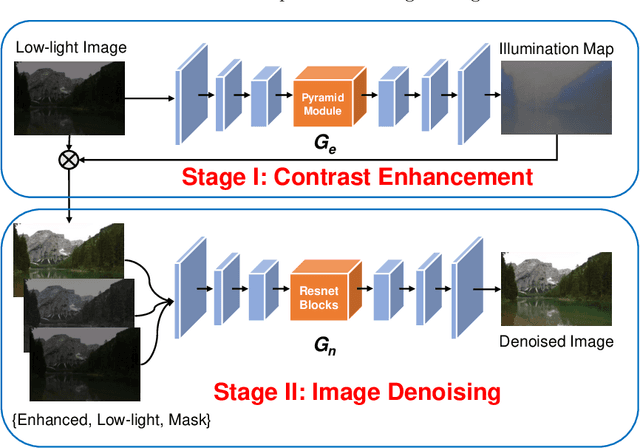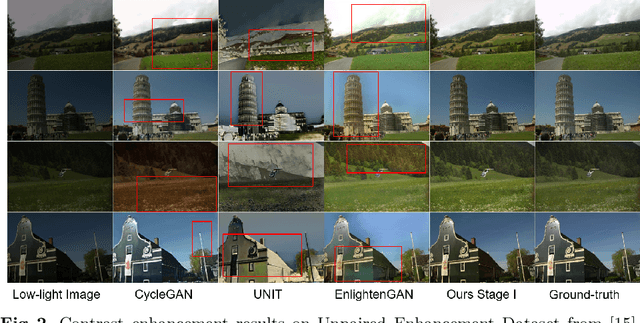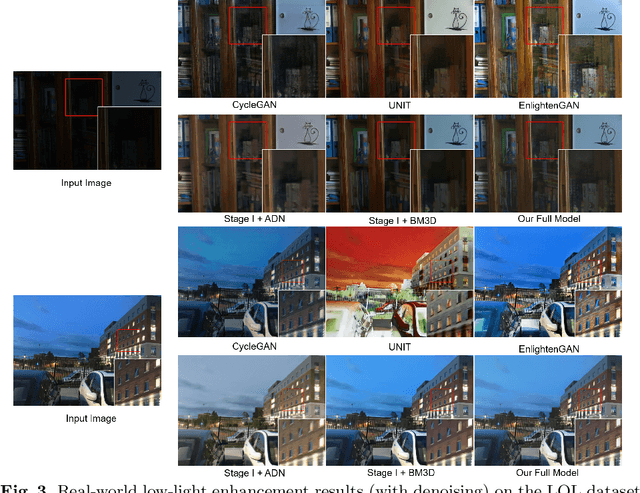Unsupervised Real-world Low-light Image Enhancement with Decoupled Networks
Paper and Code
May 06, 2020



Conventional learning-based approaches to low-light image enhancement typically require a large amount of paired training data, which are difficult to acquire in real-world scenarios. Recently, unsupervised models for this task have been explored to eliminate the use of paired data. However, these methods primarily tackle the problem of illumination enhancement, and usually fail to suppress the noises that ubiquitously exist in images taken under real-world low-light conditions. In this paper, we address the real-world low-light image enhancement problem by decoupling this task into two sub-tasks: illumination enhancement and noise suppression. We propose to learn a two-stage GAN-based framework to enhance the real-world low-light images in a fully unsupervised fashion. In addition to conventional benchmark datasets, a new unpaired low-light image enhancement dataset is built and used to thoroughly evaluate the performance of our model. Extensive experiments show that our method outperforms the state-of-the-art unsupervised image enhancement methods in terms of both illumination enhancement and noise reduction.
 Add to Chrome
Add to Chrome Add to Firefox
Add to Firefox Add to Edge
Add to Edge